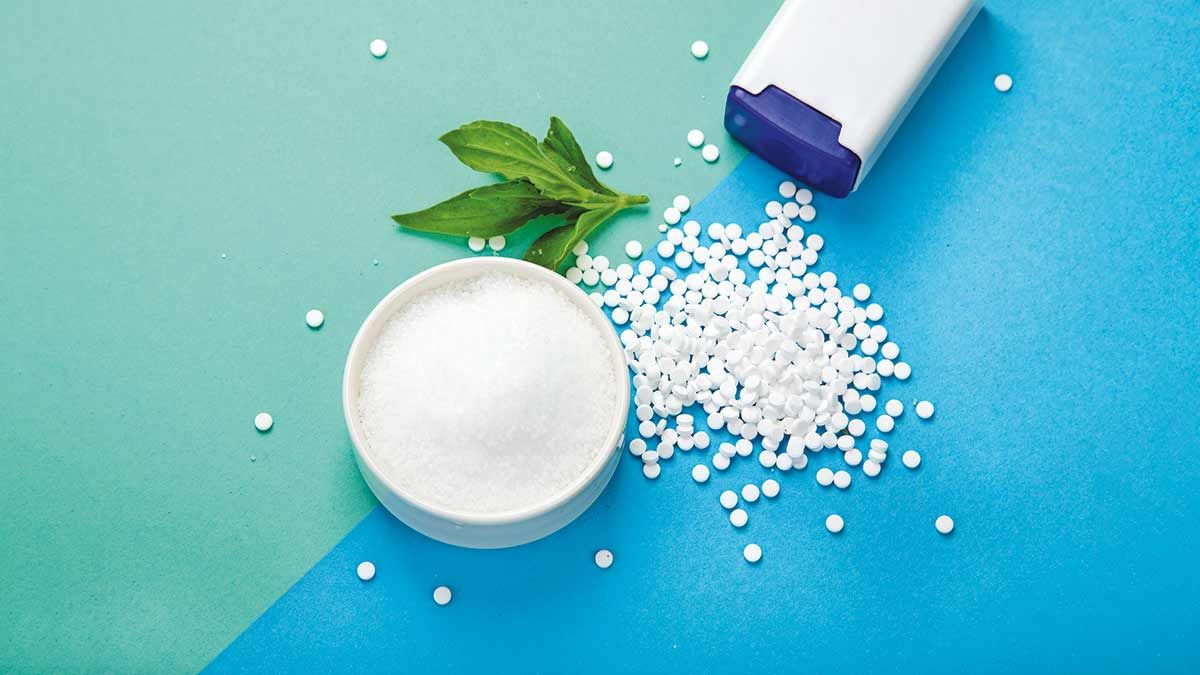Common sugar substitute may boost appetite, hunger

Sucralose, a widely used sugar substitute and the main sweetener in Splenda, may alter brain activity related to hunger and increase appetite and feelings of hunger, especially in people with obesity.
Researchers recruited 75 adults to study the effects of sucralose on brain activity, hormone levels and hunger by having them consume water, a sucralose-sweetened drink and a sugar-sweetened drink at different times.
Researchers collected MRI brain scans, blood samples and hunger ratings before and after participants consumed each drink. Sucralose increased hunger and activity in the hypothalamus, the brain region responsible for regulating appetite and body weight, especially in obese people. It also altered how the hypothalamus communicated with other brain areas involved in motivation and sensory processing, including those that play a role in decision-making. Sucralose might confuse the brain and trigger changes in cravings or eating behaviour. “If your body is expecting a calorie because of the sweetness, but doesn’t get the calorie it is expecting, that could change the way the brain is primed to crave those substances over time,” the study explained.
Participants reported feeling significantly more hungry after consuming the sucralose-sweetened drink compared to the sugary beverage. Unlike sugar, sucralose did not increase blood levels of hormones that signal fullness. Instead of satisfying hunger, sucralose may stimulate it.
The findings were published in Nature Metabolism.
Health